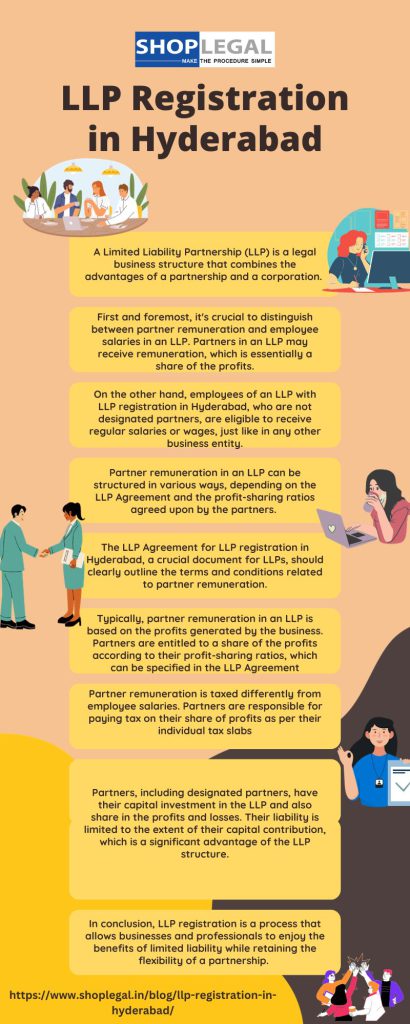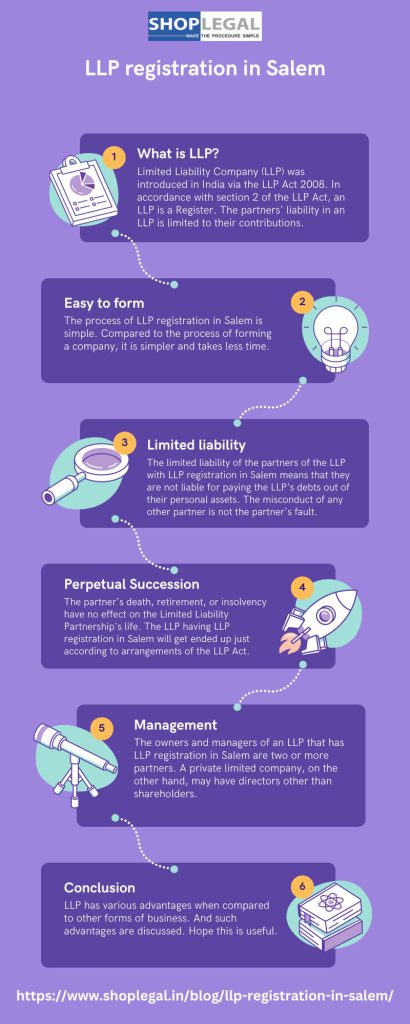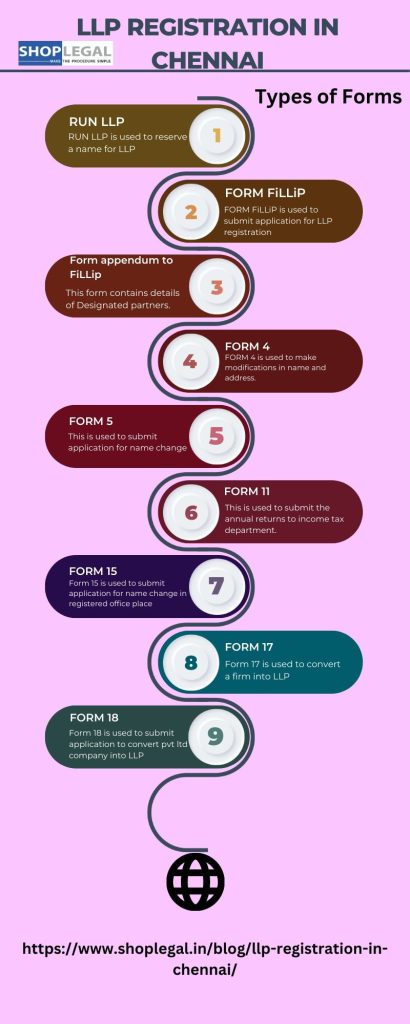LLP Registration in Hyderabad
TALK TO EXPERTS
A Limited Liability Partnership (LLP) is a legal business structure that combines the advantages of a partnership and a corporation. It offers limited liability to its partners, making it a popular choice for professionals and small to medium-sized businesses. LLP registration in Hyderabad is the formal process of establishing an LLP, and it involves several steps and legal requirements.
LLP registration offers several benefits, the most significant being limited liability for partners. This means that their personal assets are protected, and their liability is limited to their capital contribution. Additionally, an LLP has a perpetual existence, meaning it can continue its operations regardless of changes in its partners.
Furthermore, LLPs offer flexibility in management, as partners can decide how to run the business through the LLP Agreement. There is no minimum capital requirement, making it a viable option for small businesses. Taxation is another advantage, as LLPs are taxed at a flat rate, and partners’ income is taxed individually.
However, LLPs with LLP registration in Hyderabad also have some limitations. They are not suitable for businesses looking to raise capital through public offerings, as an LLP cannot issue shares to the public. They are also subject to regulatory compliance and annual filing requirements, which must be adhered to.
Can LLP pay salary?
Limited Liability Partnerships (LLPs) are a flexible and popular business structure, often chosen by professionals and small to medium-sized businesses. One common question that arises is whether an LLP can pay salary to its partners or employees. In this detailed explanation, we’ll explore the concept of salaries in LLPs, the difference between partner remuneration and employee salaries, and the legal and tax implications involved.
Partner Remuneration vs. Employee Salaries:
First and foremost, it’s crucial to distinguish between partner remuneration and employee salaries in an LLP. Partners in an LLP may receive remuneration, which is essentially a share of the profits. This remuneration is typically based on the LLP Agreement and the terms agreed upon by the partners. It is not the same as a salary but functions as a way to compensate partners for their contributions and efforts within the business.
On the other hand, employees of an LLP with LLP registration in Hyderabad, who are not designated partners, are eligible to receive regular salaries or wages, just like in any other business entity. These salaries are subject to employment laws, including labor laws, employment contracts, and tax deductions.
Partner Remuneration:
Partner remuneration in an LLP can be structured in various ways, depending on the LLP Agreement and the profit-sharing ratios agreed upon by the partners. Here are some key points to understand about partner remuneration in an LLP:
Agreement-Based:
The LLP Agreement for LLP registration in Hyderabad, a crucial document for LLPs, should clearly outline the terms and conditions related to partner remuneration. This includes the method of calculation, frequency of payments, and the criteria for determining the remuneration.
Profits-Based:
Typically, partner remuneration in an LLP is based on the profits generated by the business. Partners are entitled to a share of the profits according to their profit-sharing ratios, which can be specified in the LLP Agreement. The remuneration is a distribution of profits and not a fixed salary.
Tax Implications:
Partner remuneration is taxed differently from employee salaries. Partners are responsible for paying tax on their share of profits as per their individual tax slabs, while employees’ salaries are subject to tax withholding (TDS) by the employer.
Liability and Investment:
Partners, including designated partners, have their capital investment in the LLP and also share in the profits and losses. Their liability is limited to the extent of their capital contribution, which is a significant advantage of the LLP structure.
Employee Salaries:
Employees in an LLP that has LLP registration in Hyderabad, whether they are designated partners in addition to being employees or non-partner staff, are entitled to receive regular salaries. Here are the key points to consider regarding employee salaries in an LLP:
Employment Contracts:
LLPs, like other businesses, should have clear employment contracts in place for their employees. These contracts specify the terms and conditions of employment, including salary, benefits, working hours, and other employment-related matters.
Tax Deduction at Source (TDS):
LLPs must deduct TDS from the salaries of their employees as per the Income Tax Act, 1961. TDS is deducted at the applicable rates and remitted to the government on behalf of the employee. The LLP is required to issue Form 16 to employees, summarizing the TDS details.
Statutory Compliance:
LLPs must comply with various labor laws, such as the Employees’ Provident Fund and Miscellaneous Provisions Act, the Employees’ State Insurance Act, and other local labor laws, depending on the number of employees and their specific requirements.
Benefits and Perks:
Employees in an LLP that has LLP registration in Hyderabad are entitled to various statutory benefits and perks, such as provident fund contributions, gratuity, and medical insurance, as mandated by labor laws.
Legal and Tax Implications:
When it comes to paying partner remuneration and employee salaries in an LLP, there are specific legal and tax implications to consider:
Partner Remuneration:
Partner remuneration is subject to profit-sharing ratios agreed upon in the LLP Agreement. The LLP Agreement is a legally binding document, and any changes to it require the consent of all the partners. Partner remuneration is not considered an expense for tax purposes and is treated as a share of the profits distributed to the partners. Partners are responsible for paying tax on their share of profits individually.
Employee Salaries:
Paying salaries to employees in an LLP is subject to employment and labor laws. It is a mandatory legal requirement to have proper employment contracts, follow statutory compliance, and deduct TDS from employees’ salaries. Failure to comply with these legal obligations can result in penalties and legal issues.
Distinguishing Partners and Employees:
It’s essential to clearly distinguish between partners and employees in an LLP. Designated partners may also work as employees in the LLP, but their roles as partners and employees should be clearly defined to avoid any confusion regarding remuneration and salary.
Tax Deductions and Compliance:
LLPs with LLP registration in Hyderabad are obligated to follow the provisions of the Income Tax Act and other relevant tax laws for both partner remuneration and employee salaries. Non-compliance can lead to penalties and legal consequences.
Profit Distribution:
Profit distribution to partners, including designated partners, is a crucial aspect of an LLP’s financial management. The profit-sharing ratios should be transparent and clearly defined in the LLP Agreement to avoid disputes.
Conclusion
In conclusion, LLP registration is a process that allows businesses and professionals to enjoy the benefits of limited liability while retaining the flexibility of a partnership.
It’s a popular choice for various sectors, from law firms to consulting businesses, and it’s essential to follow the registration process carefully to ensure legal compliance and a smooth business operation.




























